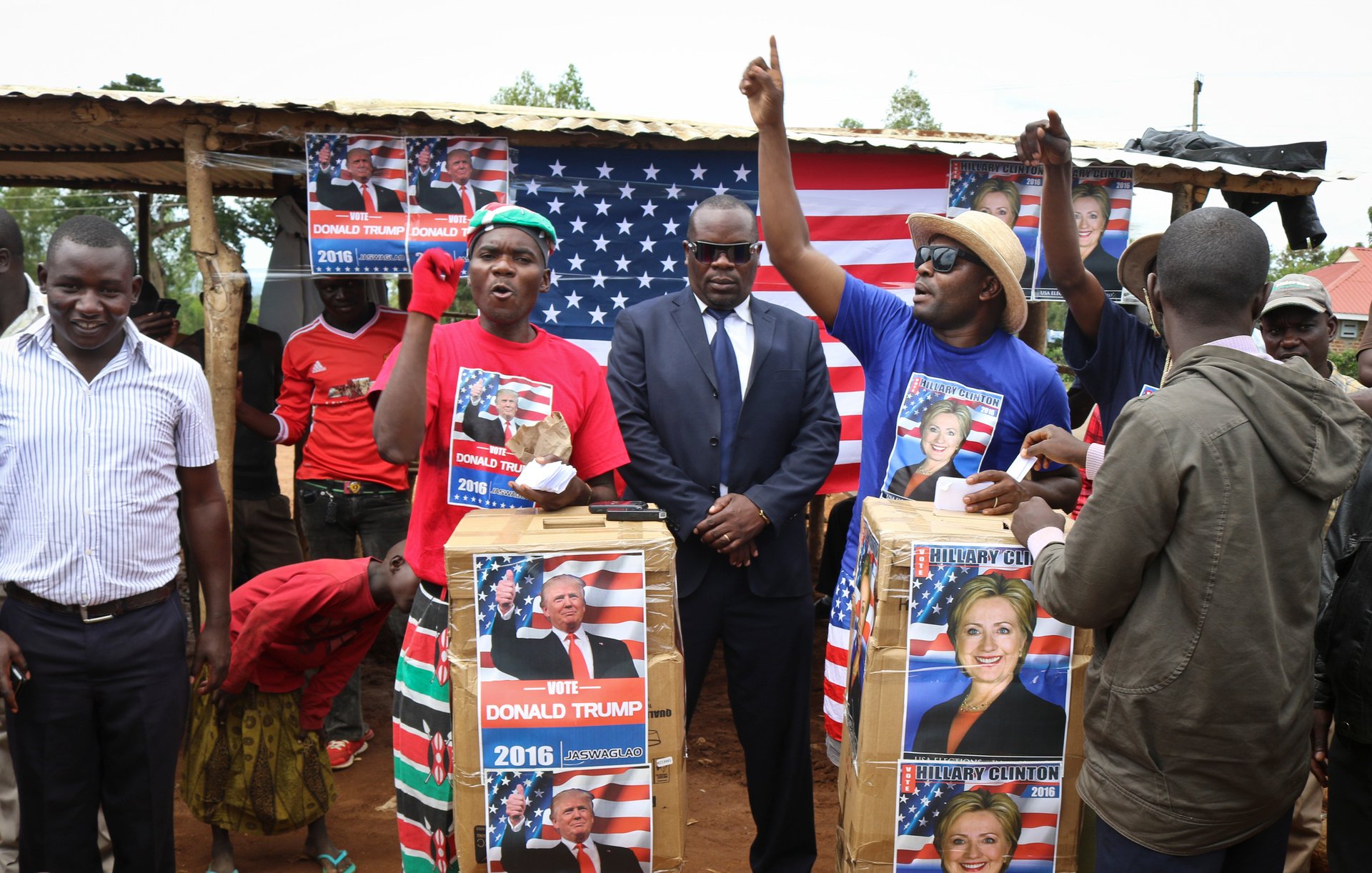US president Donald Trump and Kenya’s Uhuru Kenyatta have finally spoken on the phone
Yesterday (March 7) US president Donald Trump spoke with Kenyan president Uhuru Kenyatta, his fourth phone call with an African leader since taking office.


Yesterday (March 7) US president Donald Trump spoke with Kenyan president Uhuru Kenyatta, his fourth phone call with an African leader since taking office.
Given Kenya’s prominent military role in operations against Al Qaeda-affiliated insurgent group Al Shabaab in Somalia, the talk focused on trade and security in East Africa. The leaders ”discussed our economic partnership and mutual dedication to overcoming terrorism and other regional security challenges through close cooperation,” a readout of the call from the White House said. President Trump noted his “appreciation for Kenya’s significant contributions to the African Union Mission in Somalia and recognized Kenyan troops’ sacrifices in the fight against al-Shabaab.”
By some estimations, the call came too late, given mixed feelings between the US and Kenya. Kenya has been one of the US’s closest allies on the African continent, dating back to the Cold War when Kenya was one of few newly independent African countries to adopt a pro-Western stance and allow US military on its bases. The country is one of the top recipients of US aid, around $1 billion a year, much of that dedicated to counterterrorism efforts. And Kenyans are one of the fastest growing immigrant groups in the US.
But ties between the two countries frayed after Kenyan officials claimed Western powers were behind the International Criminal Court 2013 charges against Kenyatta and his deputy for the violence that followed the country’s 2007 national elections. Kenyatta, against whom the charges were dropped, turned to newer allies like China and inwards, blaming foreign interference for much of the country’s problems.
Since taking office in January, Trump has called at least 31 foreign leaders before Kenyatta, including the presidents of Trinidad and Tobago, Panama, and the heads of various Gulf states. Within Africa, Trump called Egyptian president Abdel Fatah Al Sisi in January and Nigerian president Muhammadu Buhari and South African president Jacob Zuma in February. One critic called the omission of East Africa’s largest economy from the list a “failure of Kenyan diplomacy.”
Trump’s tepid interest in Africa moreover might not be such a bad thing. With less certainty around trade with the US, African countries might strike more trade deals with each other. As Kenya’s deputy chief of mission to the US David Kahiro Gacheru said following Trump’s inauguration, Kenya-US relations going forward are sure to be “different.”